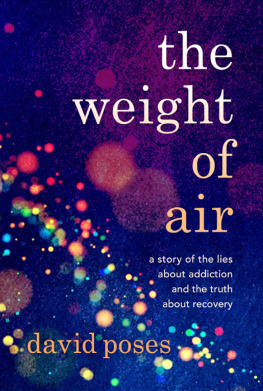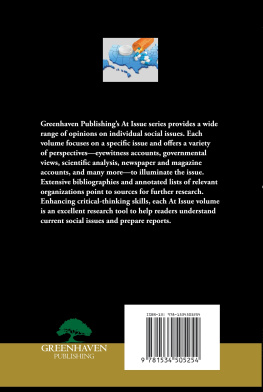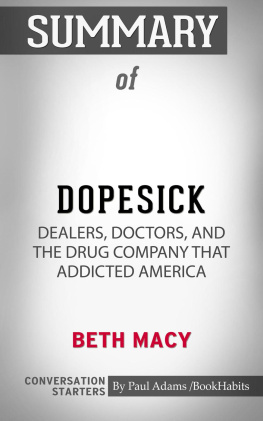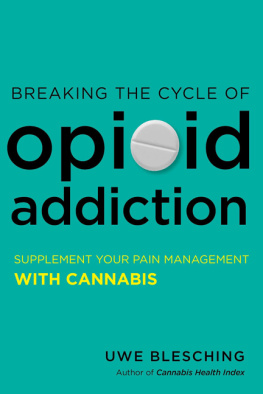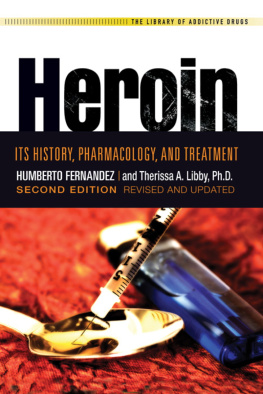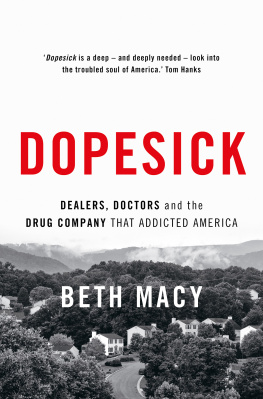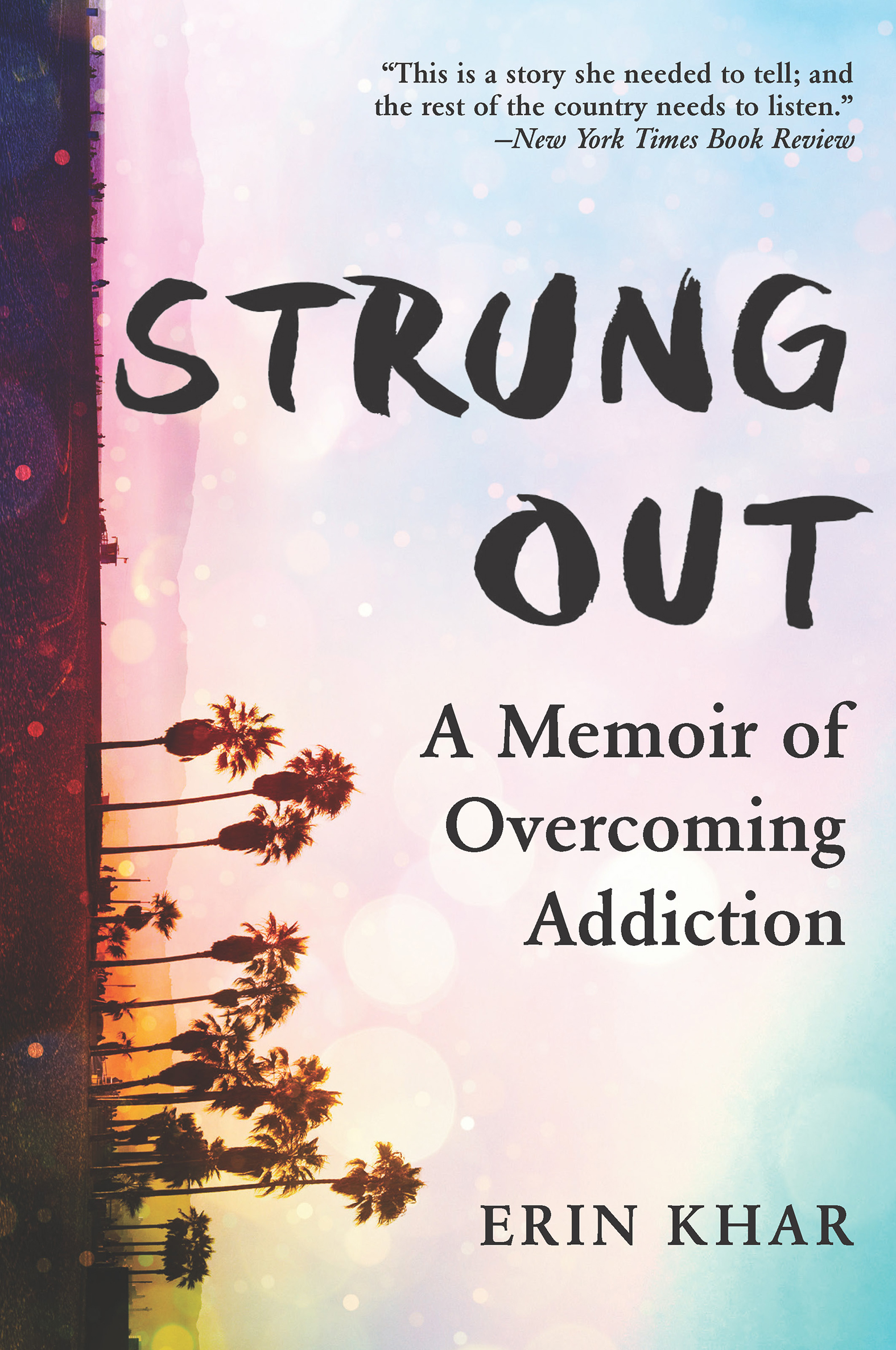
In telling her story, Erin Khar sheds profound light on the opioid crisis and gives a voice to the over two million people in America currently struggling with this addiction.
When Erin Khar first tried heroin at thirteen, the drug felt like freedom. She had experimented with her grandmothers expired painkillers, but nothing provided the full-body escape like heroin. Khar hid behind a picture-perfect childhood in LA, no one suspecting she was using drugs to suppress intense feelings she didnt know how to process or feel allowed to show.
This stunningly honest memoir explores how heroin shaped every aspect of her life for the next fifteen years and details the various lies she told herself, and others, about her drug use. With enormous heart and wisdom, she recalls how the shame and stigma surrounding addiction is what kept her from getting help sooner.
What solidified Khars road to recovery was motherhood. When she saw her son for the first time, she discovered a new kind of love, along with the inner strength and self-forgiveness she needed to fight for her life. Strung Out is an inspiring story of resilience, while also a gripping investigation into the psychology of addiction and why people turn to opioids in the first place.
Praise for Strung Out
This is a brutally honest and yet tender look inside opioid addiction. Khar pulls aside the mask of an addict, and neither self-pitying or blaming, delves deep into the personal, social and physical reasons for addiction.
Rene Denfeld, author of The Child Finder and The Butterfly Girl
Erin Khars Strung Out is a searing, fearless, provocative memoir that obliterates all we think we know about addiction. Riveting at every turn.
Lauren Hough, author of Different Colored Doorways
Khar has achieved the extraordinary: she has written a book that is a finely measured balance of heart-shattering and heart-healing, created with stunning humility, vulnerability, and wisdom mined from years of brave research of the self and society.
Reema Zaman, Oregon Literary Arts Writer of Color Fellow and author of I Am Yours
An addiction memoir that doesnt ask for pity or forgiveness, Erin Khars Strung Out is raw and real.
Lilly Dancyger, editor of essay anthology Burn It Down
Erin was beautiful even inside her pain, even inside her decade-long opioid addiction, even inside her mistakes and grief. Her beauty is her ability to share this story.
Lidia Yuknavitch, author of The Chronology of Water and The Book of Joan
The way Khar uses her own lifes struggles and her gift of language to make you feel less alone, is a rare thing in this world. You dont want to put this book down as if it is a piece of your own heart, and my guess is that it will become just that.
Jennifer Pastiloff, author of On Being Human
STRUNG OUT
One Last Hit
and Other Lies that
Nearly Killed Me
A MEMOIR
Erin Khar

Erin Khar is known for her writing on addiction, recovery, mental health, relationships, parenting, infertility, self-care and occasionally her undying love for Beverly Hills, 90210, appearing in SELF, Marie Claire, Esquire, Cosmopolitan, Good Housekeeping and Redbook, among others. Her weekly advice column, Ask Erin, is published on Ravishly. She lives in New York City with her husband and two sons. Strung Out is her first book.
For all those who didnt make it, who left too soon.
You are missed. You are loved.
Authors Note
Most names and identifying characteristics have been changed to protect identities. Dialogue and order of events have been reconstructed according to my memory, with the help of journals, letters and conversations with those who were there. I have taken great care to present the truth as I remember it.
Contents
INTRODUCTION
Going to Get the Girl
What can be said of a thirteen-year-old girls pain? What leads her onto the path of heroin?
Sometimes a girl moves through the crucibles of girlhood toward womanhood without realizing shes collecting pain all over her body, inside and out. What then shall be the language, the mode of self-expression in a world fast erasing her experience under the cover story of woman?
A girl could wake up one day with an unfillable hole in her heart and an unquenchable desire shooting out of her body.
I dont think individuals who are in pain are broken.
I think the world were supposed to live in is broken, and that brokenness is too often reflected in our bodies. But we might be the ones who can help the world to heal. We have the skill set since weve been to the edges. We are the ones who are able to see more than one story at a time.
Erin Khar has written a resilience narrative, to be sure. Strung Out is the story of her addiction and subsequent recovery, but it is also the story of what was underneath that, what led to her addiction in the first placeand so the book pulls away from other recovery narratives because it is also something else: a resistance narrative.
Erins story illuminates how the body of a girl and a woman is used by culturesometimes used up or abused or used to deathand how sometimes that same woman might yet resist the debilitating impact of her culture by embarking on a rescue mission. Erin found the strength not only to survive, but also to resist what her culture was feeding her: You are an attractive object. Your pain isnt real. You should stay quiet with your grief. Smile more. You should make your anger pretty and soft. Her form of resistance was survival, from one of the most addictive drugs, yes, but moreover, from a society that doesnt value the body of a girl.
You could say Strung Out is a heart anthem, a song about how it is possible to bring yourself back to life even when youve got one foot, leg, half a body inside the mouth of death. By learning to tell the different stories inside her body, Erin released herself from the kind of shame that causes someone to self-destruct.
Addiction is a motherfucker. Im not speaking lightly when I say that. Im not referencing some trite, clichd story about a tragic downfall and a miraculous recovery. No, I actually believe the simplicity of that cover story contributes to more pain and suffering, relapses and feelings of self-worthlessness if a person doesnt fit that specific narrative. Although I dont identify any longer with the word addict, which is the medicalized term for those of us who suffer in the ways that we do, I am a card-carrying member. The thing is, this tendency is lifelong. What we have has been historically stigmatized and remains so, and is often described as weakness, a personal failing. What we have comes and goes over the course of a lifetime, latent or triggered by God knows whats next. I am fifty-six, so I know a bit about how the boomerang works. Telling the story requires turning back on your own life and having a good, hard look, yes, but it also requires learning how to see differently. Some of the stories we are carrying inside us are contradictory, terrifying, ugly even.
How can you learn to truly see the self that did not want to feel anything? The self that moved deathward since life hurt too much? The self that felt emptied of worth? The self that created a cover being through drugs to get through existencethats the thing about griefsometimes its so sharp, you feel fearless? And how can you learn to see her with compassion and kindness?
Next page

